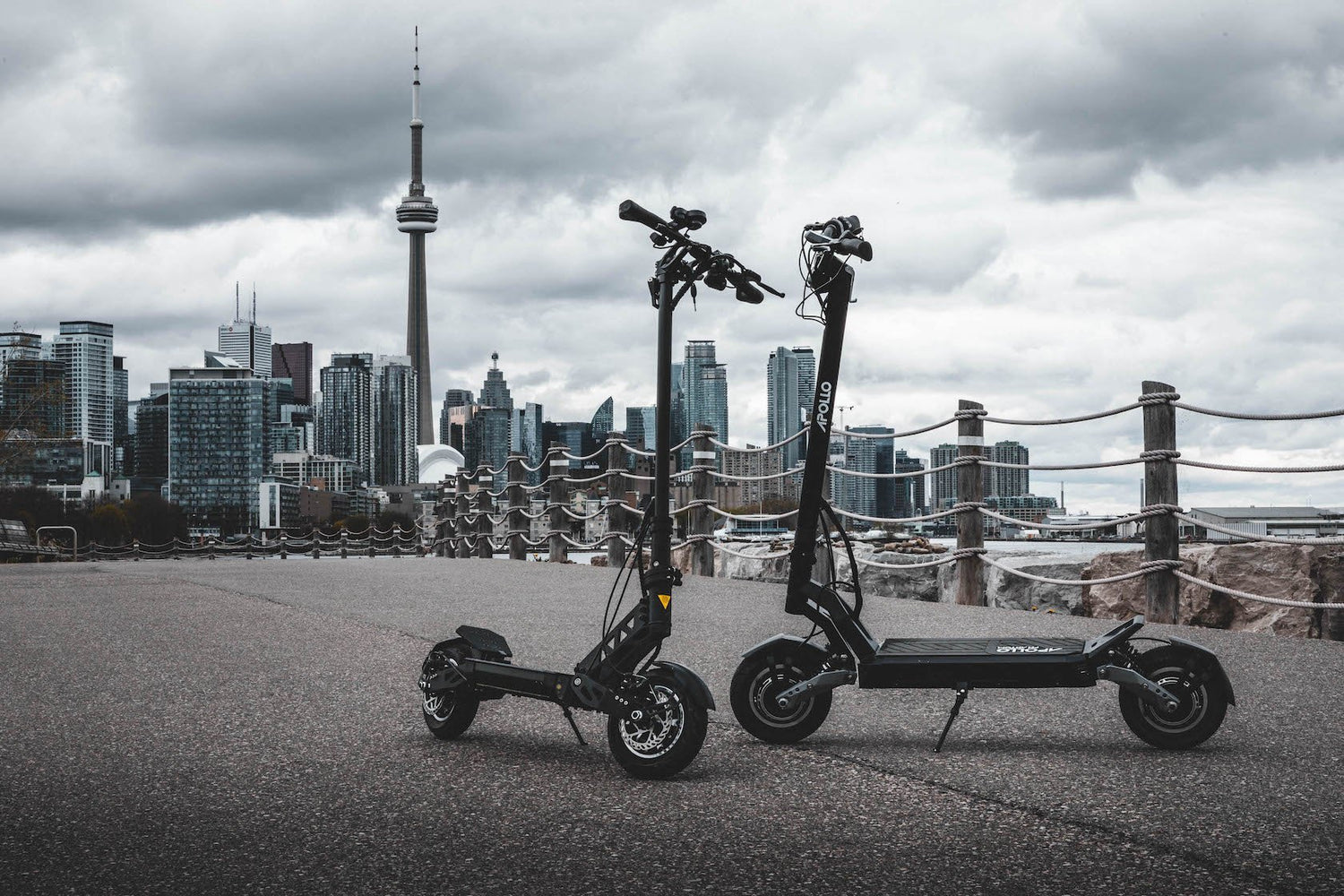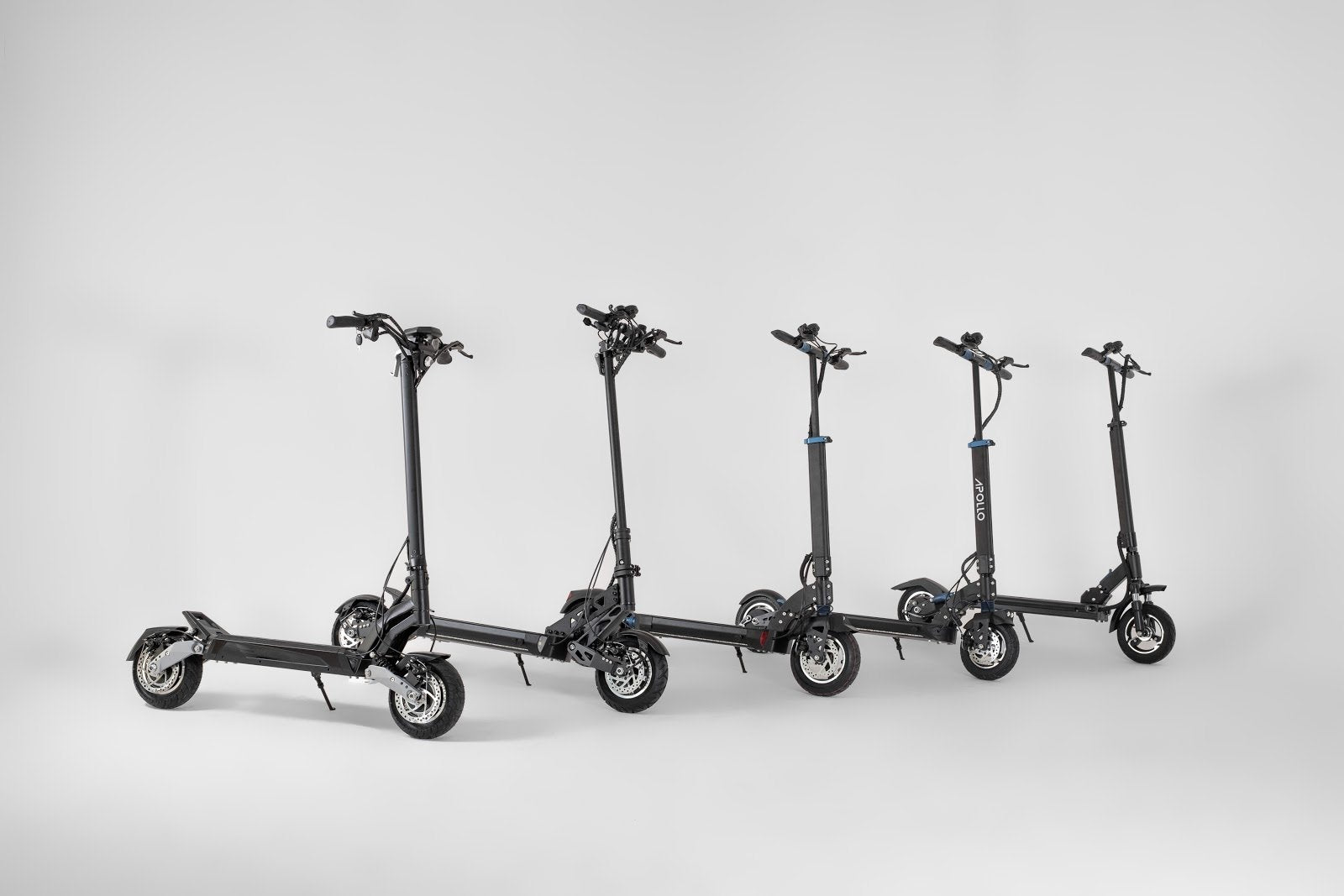You might have seen in the news or on social media something in the ballpark of “Toronto bans electric scooters”. If this is the case, you’re probably wondering “why they would be banned”, “which ones are banned” or even “what we’re doing to stop it”. This article answers all of those questions (and more) to make sure you clearly understand what’s going on and can make smart decisions in the future.
Let’s start by answering the obvious question that’s floating around : Is this the end of electric scooters?
The answer is simple and abundantly clear : ABSOLUTELY NOT!
Globally, the market for this fun, silent and sustainable mode of transportation is set to reach 29 billion dollars by 2025, and those are pre-covid estimates.
With businesses closed and people looking for a great activity to spend some quality time outdoors, that number can only go up.
With a 134% increase in private sales and hundreds of new people around the world becoming e-scooter riders every day, it’s very clear that the electric scooter revolution is here to stay.
This is a bump in the road, and like every other new invention before us, it’s going to take time and effort to get this mode of transportation recognized by our government bodies.
Good news though: Apollo scooters handle bumps in the road like no other 😉
What is the ban exactly about ?
As mentioned by Mira Miller, writer for BlogTO, “The Toronto city council decided unanimously to opt out of the province's electric scooter pilot program, effectively maintaining the ban on using [e-scooters] on public streets.”
This means that both shared and privately-owned e-scooters are effectively banned from public streets, bike lanes, sidewalks, and any other public spaces such as trails.
This can sound alarming at first glance, but keep reading because we’re working on a solution and you don’t want to miss it.
How were e-scooters banned exactly ?
“The province of Ontario [previously had] a pilot program allowing municipalities to opt-in to legalizing e-scooters on their roads. But the Toronto City staff report advised against joining the program, citing potential accessibility barriers, sidewalk safety concerns, and insurance issues.” - Laura Hanrahan, Toronto Urbanized
In order to ban them, the Toronto City Council voted to withdraw from the pilot program, which means that municipalities can no longer choose to legalize e-scooters on their roads, and must adhere to the city wide ban.
Why were e-scooters banned ?
Unfortunately, the issue mainly comes from the misuse of e-scooter rentals (the likes of bird and lime) and their riders’ negligence for safety and good practices.
Many people we’re not wearing helmets, and scooters we’re being driven and parked everywhere, with disregard for traffic and parking laws. As a result, the Infrastructure and Environment Committee of Toronto unanimously voted to adopt a motion to have the Toronto City Council uphold the e-scooter ban.
This situation is very similar to the one in the city of Montreal, where rental scooters were introduced for 2 months, but taking off the market abruptly, as the disregard for the rules of the road had become too much of a safety concern.
It’s worth mentioning that so far, not a single one of our customers has received a police ticket.
It’s consequently safe to assume that the majority of the problem stems from rental scooters and the lack of safety infrastructure around them, rather than privately owned scooters (whose owners more than often follow all the rules of the road and ride responsibly.)
According to the motion from the Infrastructure and Environment Committee of Toronto, “Based on extensive research and feedback, [our] report concludes that accessibility barriers, safety concerns and insurance issues remain unresolved for privately owned and rental e-scooters,”
In a report released last month, accessibility advocates had argued the scooters present safety hazards, especially for people living with disabilities and seniors, when encountering them illegally operating on sidewalks. - Phil Tsekouras, Multi-Platform Writer, CTV News Toronto
Among these advocates is the Toronto Accessibility Advisory Committee, which requested that the ban prohibiting the use of e-scooters in all public spaces remain in place without any exceptions.
What should I do?
Rest assured, you won’t have to get rid of your scooter any time soon.
We’re working around the clock, doing everything we can to make sure that the city of Toronto understands that e-scooters are as safe and as beneficial (if not more) as e-bikes, that have already been legalized by the city of Toronto1.
The below section called “what is Apollo doing to help” explains all about our current efforts to get this issue resolved, and the good news is we’re far from being the only ones fighting for legalization.
The micromobility community is coming together to make sure that government officials understand the countless benefits of e-scooters.
For example, executives from Segway Ontario, Smart Wheel Canada and Epicycle Canada have issued a motion to have the vote reverted, and to put in place safe and continued implementation of city bylaws that reflect the changing nature of private urban transportation.
In addition to working with the city, they also look forward to opening dialogue with the Toronto Accessibility Advisory Committee to find amenable solutions for all parties.
As mentioned in their report, the benefits of e-scooters are clear and incontestable, especially when privately owned :
- Low-cost, equitable and affordable transportation solution
- Reducing wear and tear on streets – same impact as bicycles
- Replacing food delivery cars with low-impact e-scooters
- Removing emissions that would have been emitted by additional car trips
- Improving the uptake rate of Toronto’s bicycle pathways and cycle tracks
- Allowing users to easily explore the city, BIA’s and other landmark destinations
As a reminder, e-scooters are currently banned in the city of Toronto. So keep that in mind if you decide to cruise around, and always make sure to apply the best practices (featured in the last section below).
The road should be for everyone, and it’s our job to learn how to share it!
What is Apollo doing to help ?
Our mission has always been to bring practical, enjoyable and sustainable transportation to all regions of the world, and we’re not about to stop now!
We are undergoing many lobbying activities with the government to make sure that we can create a safe and fun experience for everyone on the road.
For example, we’re putting forward propositions to do full scooter courses with every sale. This would ensure that all riders are adequately informed about the do’s and don'ts of riding electric scooters, in order to make the best decisions and enhance the safety for all parties involved.
We’re also joining forces with different lobbying groups in order to get petitions going. Our goal is to show the government just how much we, the electric scooter community, are determined to change the world through the power of sustainability, and with the utmost attention to safety and conviviality.
E-scooter best practices
Here are some of the do’s and don’ts of riding an electric scooter, to make sure you know how to share public spaces safely and enjoy your ride.
DO’s
- Always wear a helmet
- Have a horn or a bell
- Have front and back lighting
- In the nighttime, wear clothing that makes you visible to oncoming traffic
- Always follow traffic signs and guidelines
- Always respect the speed limit (limited to 32km/h for electric vehicles)
- Always park in municipally approves parking areas
- Stand at all times (no sitting or crouching)
- Always maintain your scooter in good condition
- Always be courteous
DON’Ts
- Never text and ride
- Never ride if inebriated (no drugs or alcohol are permitted when operating an e-scooter/consequences under the Criminal Code of Canada may apply)
- Never ride on sidewalks
- Never carry a passenger
- Never ride with dysfunctional parts (including but not limited to brakes, wheels, inner tubes, battery(ies) and displays)
Final thoughts
To conclude, we want to reinforce our previous statement. Although unfortunately, right now, riding an e-scooter in Toronto is your decision and your risk to take, we’re doing everything that we can to resolve the situation as fast as possible.
We are committed to our mission of sustainable transportation, and we will never stop fighting for our community.
If you have any questions or concerns, always feel free to contact us, we’re happy to help :).
In the meantime don’t forget to wear a helmet, and remember - the future is electric ⚡️
Want to learn more? Check out our podcast on the topic of e-scooter legality in Toronto here.
~
References:
- E-bikes are treated like bicycles in Toronto only if they are pedal-assisted or "pedelecs" and require pedalling for propulsion (i.e., the power is cut to the motor when the rider stops pedalling).
- Power-assisted e-bikes are e-bikes that are capable of operating solely by motor power and are only allowed on roads and on painted bike lanes.
- “From April 2020 to December 2021, private sales have increased 134%.”
- Globally – at least according to pre-coronavirus analyses – e-scooter sales are predicted to peak in 2025, mainly in the Asia-Pacific region, with a value of around £20bn.



















